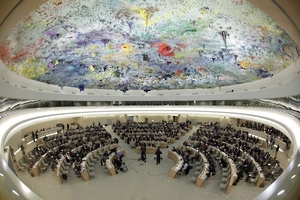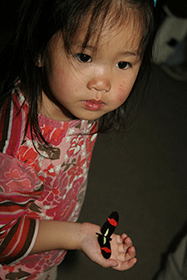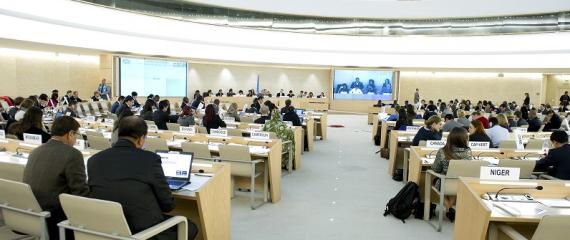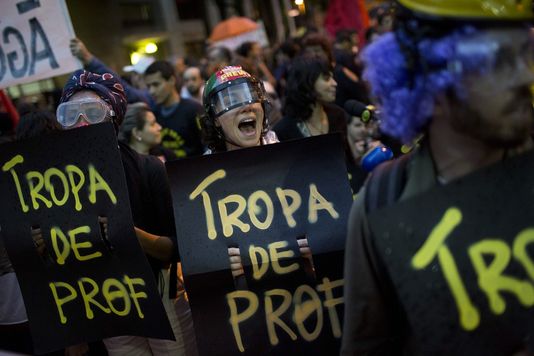Miscellaneous
« Droits de l'homme » or « droits humains »? - a recurring debate
Fri, 06/05/2015 - 08:50 — CIFEDHOP In french, the terminology « droits de l'homme » is regularly called into question because their opponents say that it is a sexist vocabulary. While other countries have translated in their own mother tongue the original english expression « human rights », the french situation seems to be more complicated.
In french, the terminology « droits de l'homme » is regularly called into question because their opponents say that it is a sexist vocabulary. While other countries have translated in their own mother tongue the original english expression « human rights », the french situation seems to be more complicated.
Reference:
- Login or register to post comments
- Read more
- Français
 Recommander cette page à un(e) ami(e)
Recommander cette page à un(e) ami(e)
US on the défensive
Wed, 05/13/2015 - 07:23 — CIFEDHOP This past May 11, the United States presented its report to the Human Rights Council, in Geneva. « Many countries have decried police brutality, spying, racial discriminations and death penalty. » (…).
This past May 11, the United States presented its report to the Human Rights Council, in Geneva. « Many countries have decried police brutality, spying, racial discriminations and death penalty. » (…).
- Login or register to post comments
- Read more
- Français
 Recommander cette page à un(e) ami(e)
Recommander cette page à un(e) ami(e)
CRIN's achievements in 2014 and 2015 prospects
Fri, 01/16/2015 - 08:48 — CIFEDHOP In its new year special issue, CRINmail sets out a non-exhaustive list of 2014 events which are likely to stay while they should rise to positive or negative outcomes. This issue focuses in particular on recent legislative reforms and those expected in 2015.
In its new year special issue, CRINmail sets out a non-exhaustive list of 2014 events which are likely to stay while they should rise to positive or negative outcomes. This issue focuses in particular on recent legislative reforms and those expected in 2015.
Source (in French) : www.crin.org/fr/accueil/notre-action/cm/crinmail-145
- Login or register to post comments
- Français
 Recommander cette page à un(e) ami(e)
Recommander cette page à un(e) ami(e)
Best wishes
Sun, 01/04/2015 - 15:06 — CIFEDHOP
CIFEDHOP wishes a very happy new year to you all whose different cultural, linguistic and geographic expressions make our common humanity a home of diversity where equal rights for all should become a common goal.
Photo:Jean Hénaire
- Login or register to post comments
- Français
 Recommander cette page à un(e) ami(e)
Recommander cette page à un(e) ami(e)
Albania
Tue, 12/16/2014 - 15:09 — CIFEDHOPPrécédents examens : décembre 2009, avril 2014
Prochain examen : Janvier 2019
39 States encourage the Human Rights Council to act against lack of implementation
Fri, 09/26/2014 - 08:49 — CIFEDHOP
On 22 September 2014, in a statement read by Macedonia FYR, 39 States called on the Human Rights Council (the Council) to react to the lack of implementation of UPR recommendations.
- Login or register to post comments
- Read more
- Français
 Recommander cette page à un(e) ami(e)
Recommander cette page à un(e) ami(e)
Happy new year
Mon, 01/06/2014 - 10:40 — CIFEDHOPThe CIFEDHOP's team sends its best wishes to all for a peaceful 2014!

- Login or register to post comments
- Français
 Recommander cette page à un(e) ami(e)
Recommander cette page à un(e) ami(e)
International Service for Human Rights
Sun, 11/17/2013 - 12:18 — CIFEDHOP The International Service for Human Rights is an independent, non-governmental organisation dedicated to promoting and protecting human rights. We achieve this by supporting human rights defenders, strengthening human rights systems, and leading and participating in coalitions for human rights change.
The International Service for Human Rights is an independent, non-governmental organisation dedicated to promoting and protecting human rights. We achieve this by supporting human rights defenders, strengthening human rights systems, and leading and participating in coalitions for human rights change.
- Login or register to post comments
- Read more
- Français
 Recommander cette page à un(e) ami(e)
Recommander cette page à un(e) ami(e)
17th session of the Human Rights Council’s UPR Working group
Mon, 10/21/2013 - 12:14 — CIFEDHOP Today, in Geneva, the work of the Human Rights Council’s UPR Working group will resume. During the next two weeks of this 17th session, 15 States* will be reviewed.
Today, in Geneva, the work of the Human Rights Council’s UPR Working group will resume. During the next two weeks of this 17th session, 15 States* will be reviewed.
The States’ representatives will appear before the Working Group's 47 members and give an account of the measures that have been taken in a view to comply with their obligations and commitment.
- Login or register to post comments
- Read more
- Français
 Recommander cette page à un(e) ami(e)
Recommander cette page à un(e) ami(e)
Social protest in Brazil : teachers out into the streets
Fri, 10/18/2013 - 09:01 — CIFEDHOP In Rio de Janeiro, public schools teachers have been on strike for two months. The are many reasons for such an anger. Among other things, they call for a withdrawal of a career plan which concern only a minority of them and a better wage agreement as well. The teachers are, in fact, poorly paid, earning only 17 to 25 reals an hour (5,5 to 8 euros) during their early years of teaching.
In Rio de Janeiro, public schools teachers have been on strike for two months. The are many reasons for such an anger. Among other things, they call for a withdrawal of a career plan which concern only a minority of them and a better wage agreement as well. The teachers are, in fact, poorly paid, earning only 17 to 25 reals an hour (5,5 to 8 euros) during their early years of teaching.
- Login or register to post comments
- Read more
- Français
 Recommander cette page à un(e) ami(e)
Recommander cette page à un(e) ami(e)